We welcomed 50 undergraduate and postgraduate taught students to the 5th BEAR Challenge (#BEARChallenge2024), held over 24-26 June, 2024. Due to room constraints, we could only fit in 10 teams, so unfortunately had to turn away over 50 additional students who had applied. This year, we welcomed teams with students from Computer Science, Physics, Philosophy, Psychology, Mathematics and Cancer and Genomic Sciences. Students ranged from year one undergraduates, through to postgraduates studying for Masters courses. All the participants were granted access to Baskerville, our national Tier 2 High Performance Computing (HPC) system with 208 NVIDIA A100 GPUs.

Similar to last year, there were 5 challenges over the three days, with the first day being spent learning how to login and use the Baskerville HPC system. Dr Andrew Edmondson (Ed), Research Software Group Leader for Advanced Research Computing gave a talk on how to apply for a job in the area, including tips on how to apply for any job.
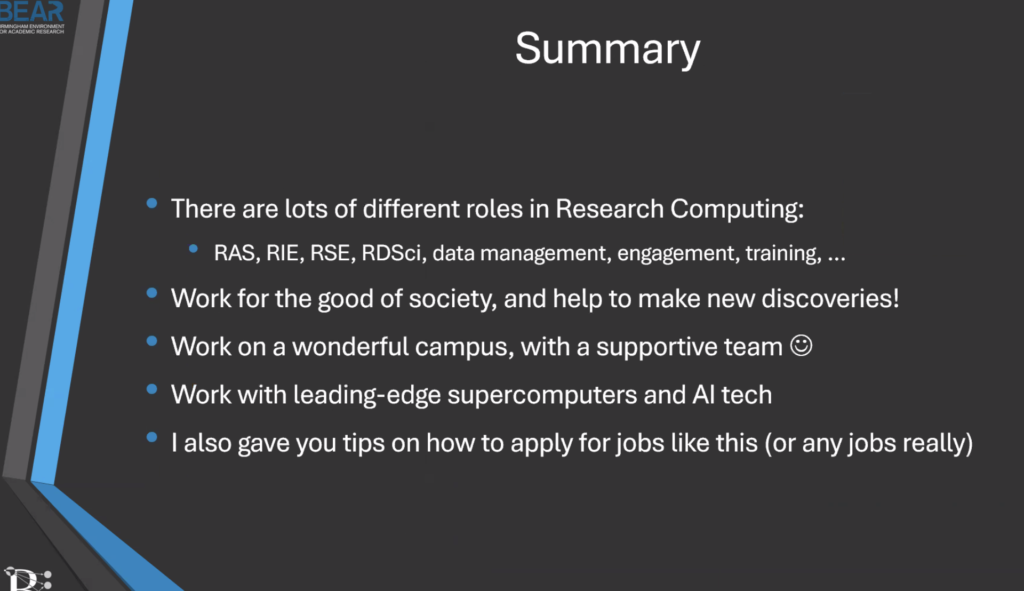
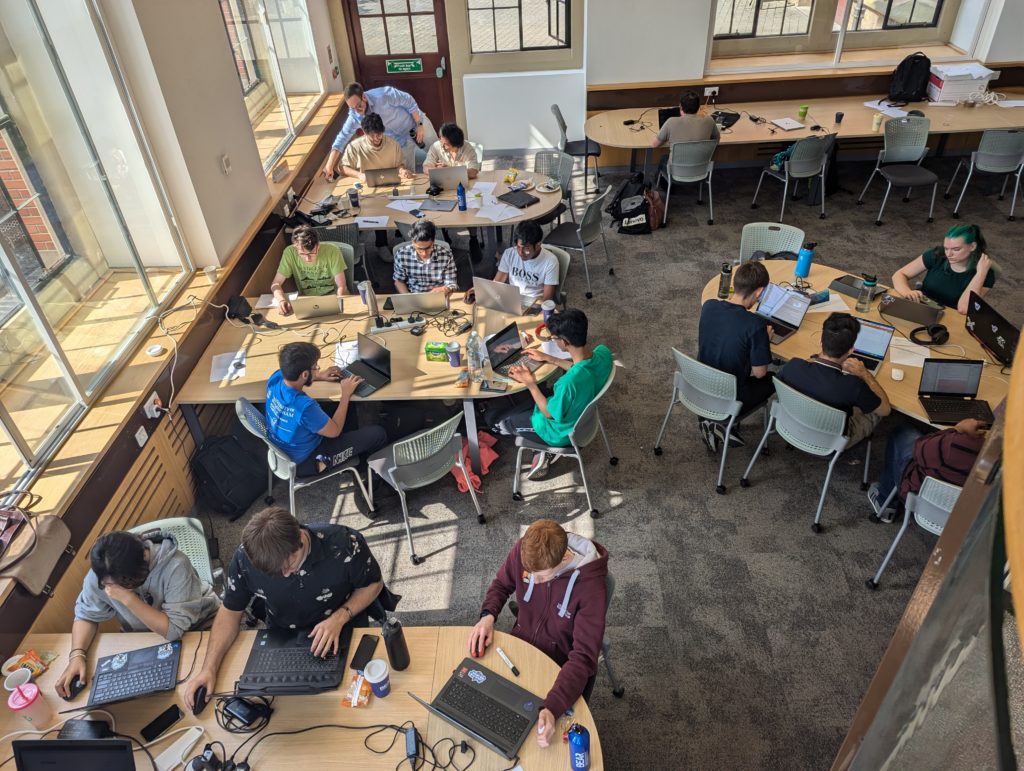
On the second day, we welcomed Paul Graham from NVIDIA, who presented a challenge on training a neural network to classify tropical cyclones. Paul also described the careers available within NVIDIA (the company that recently overtook Microsoft as the most valuable in the world), including his own role as Senior Solutions Architect for HPC & AI.
Day 3 included the final challenge provided by Lenovo, to design a HPC cluster to meet a customers needs. Kate Steele, UKI Public Sector Sales Manager for Lenovo, gave an aspirational talk on her career pathway and the various roles available within Lenovo around HPC in management, technical and development areas.
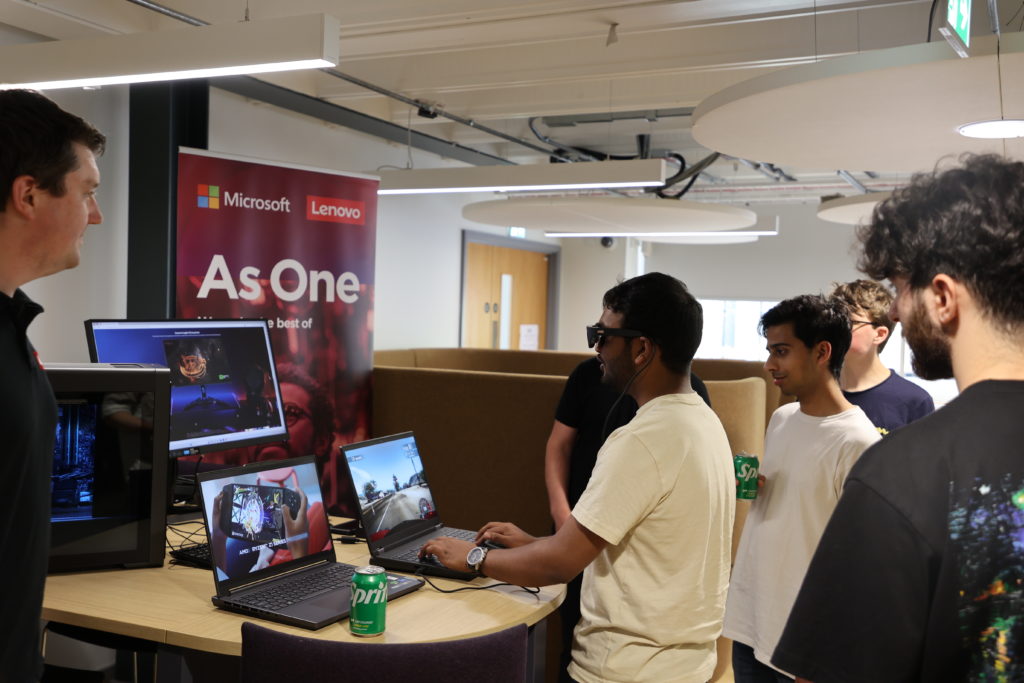
Whilst the final challenge was being marked, the students were able to try out the VR gaming computers kindly provided by Lenovo (above). They also had a virtual data centre tour from Luke Sudbery in the Architecture, Infrastructure and Systems Group, with students being shown compute trays from the research data centre.
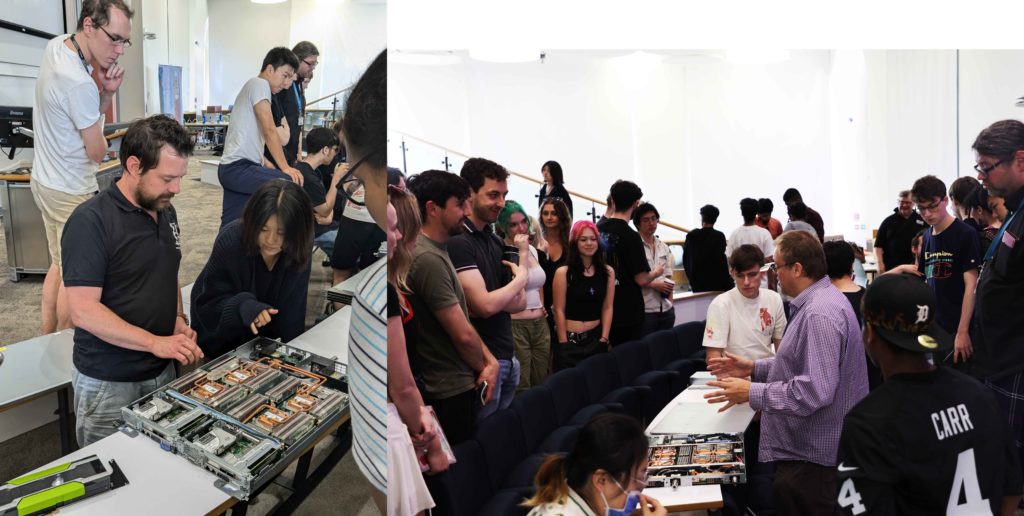
The results were then in! It was very close at the top with B.E.A.R. (Barely Equipped and Ready) coming first, followed by the Cookie Monsters in 2nd place, with joint 3rd place for TED (Tech Embracing Democrat) and return-1. It remained competitive throughout the three days of challenges leaving the winning place open until the third day of the competition.
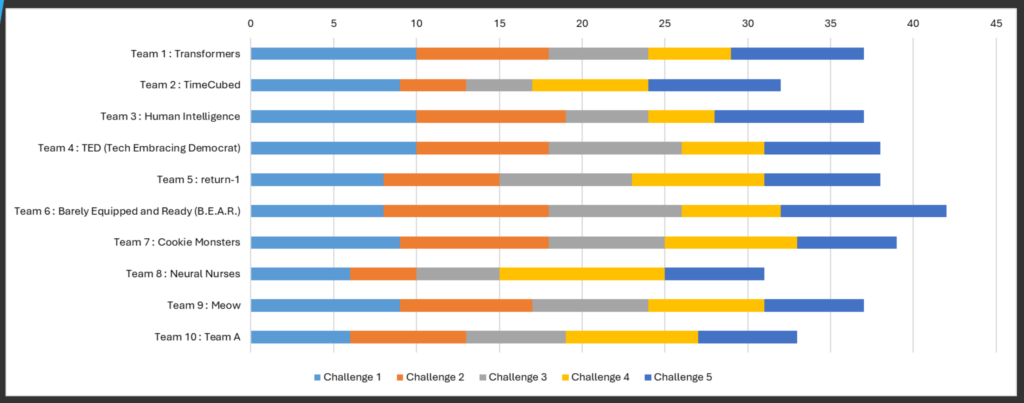
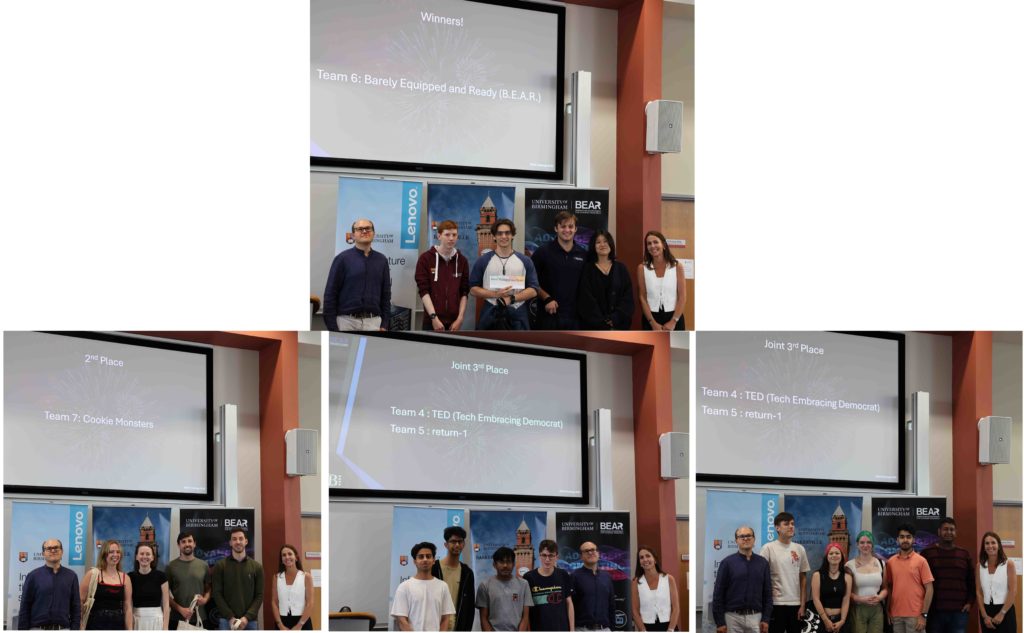
Professor Andrew Morris, Director of Baskerville and Chair of the Research Computing Management Committee awarded the prizes, together with Kate Steele, with the winning team being given a Lenovo tablet each. Andrew also gave an inspiring talk describing how the students had put themselves at the front of the upcoming revolution in technology by taking part in the challenge, by gaining skills in Python, coding and AI.
The students gave their thoughts on the experience via a blog post and our feedback form:
It was an amazing event and through the experience I felt cared for and was truly interested in the challenges while gaining some fantastic insight from some incredible people.
Student participant
Q: Did you learn anything from the BEAR Challenge? A: That every team member can contribute their different skill set, whether that be technical or management. It also expanded my horizons of the scientific application of HPC and what that physically looks like.
Student participant
We will be supporting teams from the BEAR Challenge to represent the national CIUK Cluster Challenge, so that they can continue their journey into exploring HPC in the short-term, and hopefully as a career in the future – everyone who completed the feedback form said they were interested in a career in HPC. Even if students do not wish to pursue a career in HPC, they will have gained valuable skills through the challenge – see the blog post from a 2023 BEAR Challenge participant. The challenge also provides the hours required for the development activities for the Postgraduate Professional Development Award.
We are already making plans for next year’s event and investigating whether we can accommodate additional teams, so that more students can benefit from the experience. We would like to thank our framework suppliers, Lenovo, for funding the catering and supplying the tablets for the winning team, and both Lenovo and NVIDIA for running a challenge and providing a careers talk.
